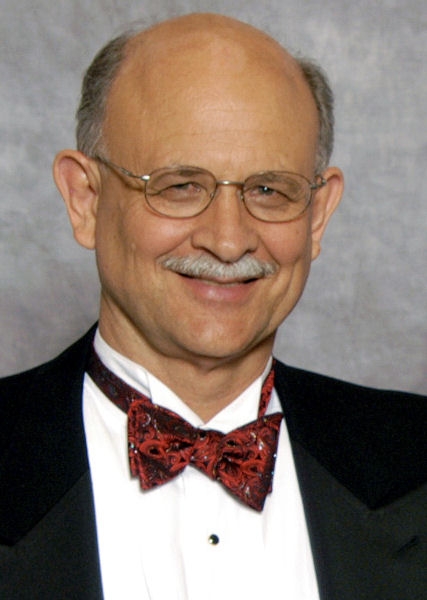
Rhodes Trussell, Water Environment Federation (WEF; Alexandria, Va.) member since 1966, has received the 2013 National Water Research Institute (NWRI; Fountain Valley, Calif.) Athalie Richardson Irvine Clarke Prize for excellence in water research. Photo courtesy of NWRI.
Rhodes Trussell, an active member of the Water Environment Federation (WEF; Alexandria, Va.) since 1966, has been named recipient of the 2013 National Water Research Institute (NWRI; Fountain Valley, Calif.) Athalie Richardson Irvine Clarke Prize for excellence in water research.
As a civil and environmental engineer with more than 40 years of experience, Trussell is chairman and CEO of Trussell Technologies Inc. (Pasadena, Calif.). He earned the Clarke Prize by using fundamental scientific principles and current research findings to solve water problems and highlight the importance and improve the designs of new water resource recovery facilities and treatment technologies, according to an NWRI news release.
Early on as a WEF member, Trussell served on the joint editorial board for Standard Methods.
“Besides Standard Methods, my earliest [WEF] recollection is my involvement in the Disinfection Committee in the late 1970s and early 1980s,” Trussell said. “Through that activity, I made a lot of good friends.”
Trussell has focused his career on implementing solutions to improve water quality and meet regulatory and public health needs. These types of efforts have resulted in improved water policy and adoption and acceptance of new treatment technologies, the news release says.
For example, Trussell worked with Contra Costa Water District in Concord, Calif., in the early 1980s to develop disinfection alternatives to meet new regulations for trihalomethanes. His studies demonstrated the cost-effectiveness of chloramination in controlling trihalomethane formation and helped the California Department of Public Health agree to allow the use of chloramine to manage chlorine residual in treated water, which was duplicated in utilities throughout the United States.
“I am truly honored to receive the Clarke Prize,” said Trussell in the release, “and a bit humbled when I consider the previous recipients, who include most of my mentors. No man is an island, and I am no exception. There are many collaborators who deserve the credit that is being given to me.”
Recently, Trussell’s work has focused on potable-water reuse. This includes working on a project funded by the WateReuse Research Foundation (Alexandria) to develop treatment process combinations necessary to employ direct potable-water reuse as a water source, the news release says. For more information, read the report Examining the Criteria for Direct Potable Reuse.
Trussell also serves on the NWRI expert panel to review the development and implementation of the Orange County (Calif.) Water District’s Groundwater Replenishment System and as chair of the U.S. National Research Council Committee on Water Reuse, which published the report Water Reuse: Potential for Expanding the Nation’s Water Supply Through Reuse of Municipal Wastewater, the news release says.
Throughout his career, Trussell has authored many peer-reviewed articles and technical reports, worked on hundreds of water and wastewater engineering projects, and developed process designs for many treatment plants. He also has served as chair of the Water Science and Technology board for the U.S. National Academies, research advisory committee for the WateReuse Research Foundation, and editorial advisory board for Standard Methods for the Examination of Water and Wastewater. He also has served as a member of the board of directors of the Water Environment Research Foundation (Alexandria) and was active on the U.S. Environmental Protection Agency Science Advisory Board for 17 years.
— Jennifer Fulcher, WEF Highlights








September 5, 2013
Achievements, Featured